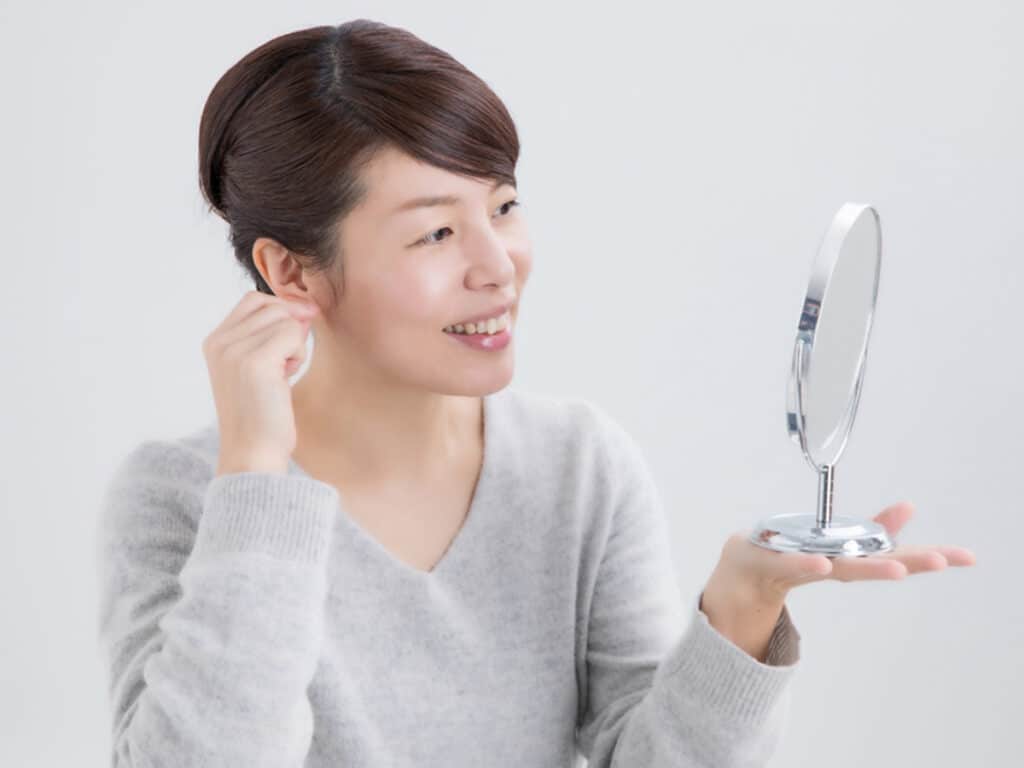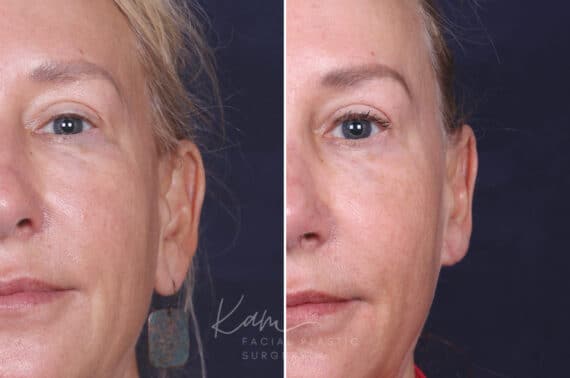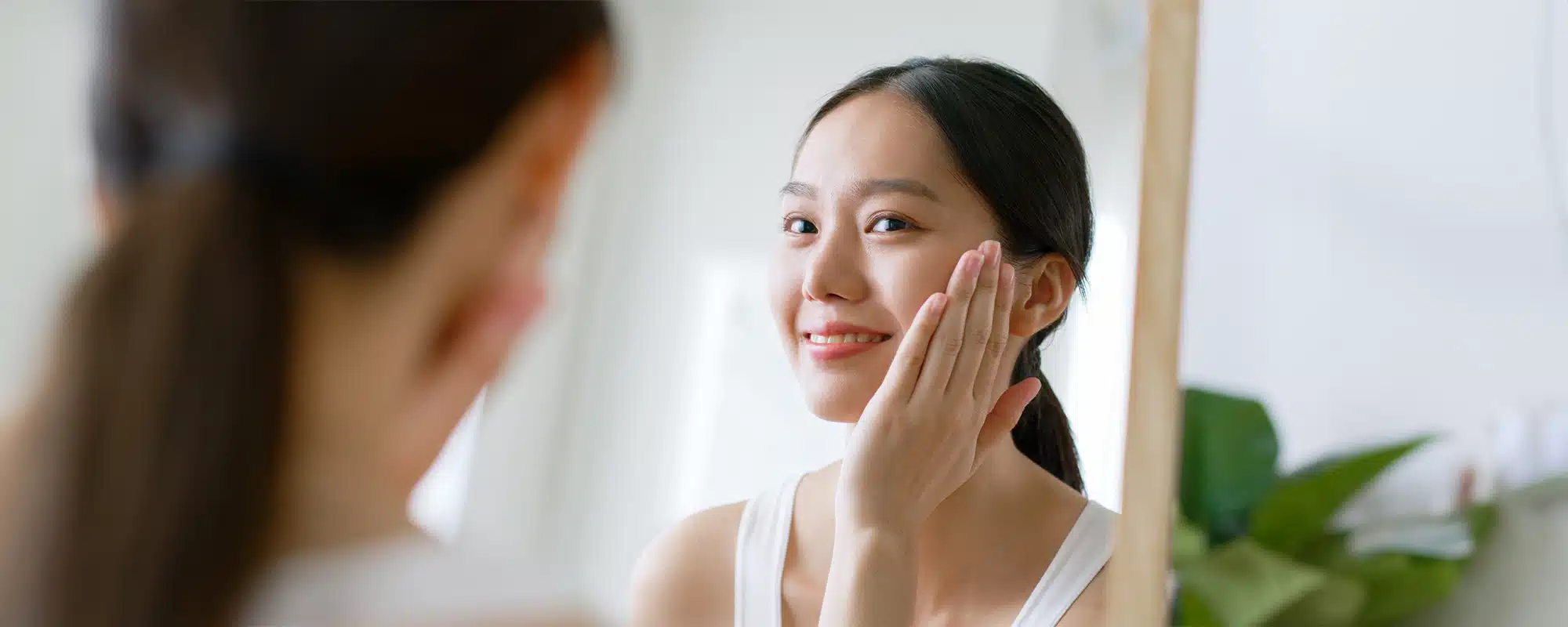Otoplasty is a surgical procedure aimed at achieving ear symmetry and is commonly referred to as ear pinning in cosmetic surgery. A facial plastic surgeon can perform it and involves reshaping, resizing, and repositioning the ears.
After undergoing otoplasty surgery, it is important to carefully follow your surgeon’s post-operative instructions for optimal results and a successful healing process. This guide will provide information on how to best recover from an otoplasty procedure including tips on discomfort management, activity restrictions, and other advice that can help you heal with a smile.

Essential Tips for Recovering After Otoplasty
- The typical recovery time for otoplasty is short, with most people resuming normal activities within a week or two.
- Proper pain management and the use of compression bandages help reduce swelling and discomfort post-surgery.
- Wearing a protective headband at night ensures ear symmetry and reduces the risk of damage to healing cartilage.
- Maintaining an elevated head position and avoiding tight-fitting clothing aids in reducing swelling and irritation.
- Follow-up appointments with your surgeon are crucial for monitoring progress and ensuring proper healing.
WHAT IS THE TYPICAL RECOVERY TIME AFTER UNDERGOING OTOPLASTY?
The recovery time for otoplasty, or cosmetic ear surgery, is usually pretty short and varies from person to person. Most people can get back to their regular activities after just a few days of rest. It’s normal to have some swelling and soreness at first, but over-the-counter pain meds or prescribed medication can help manage it.
As long as all pre and post-operative instructions from your plastic surgeon are followed, most people find that they can return to their normal daily activities within a week or two of their cosmetic procedure.
patient results
* All patients are unique and individual results may vary.
TIPS TO GET BETTER AFTER YOUR OTOPLASTY
After having otoplasty or ear pinning surgery, it is important to take the necessary steps to ensure a successful recovery.
Pain Management After Surgery
It is common to experience some degree of discomfort after undergoing otoplasty. To reduce pain and swelling, it is important to take the recommended pain relievers within 24 hours after surgery as prescribed by your doctor. To further manage any discomfort, topical ointment can be applied to the incision sites several times a day.
It is important to be able to recognize normal versus abnormal pain levels following otoplasty. Pain that is mild and manageable with over-the-counter medications such as ibuprofen or acetaminophen is considered normal. However, if the pain persists and/or becomes more severe, then it is important to contact your surgeon for further evaluation.
Rest and Take Care of Yourself
A successful recovery following otoplasty requires getting lots of rest. Your body can heal more quickly when you rest, as a result, you’ll be able to achieve your aesthetic goals sooner.
Use a Compression Bandage
After otoplasty, using a compression bandage can help reduce swelling and support the surgical sites. Make sure to have the right type of bandage ready before your surgery. Soft bandages are a good choice because they absorb excess fluid and offer gentle compression.
Keep an eye on how tight the bandage is, as too much pressure can cause more swelling. Your facial plastic surgeon might also suggest an adjustable compression headband for extra support and comfort, depending on your swelling.
Wear the Headband at Night
Protective headbands are often worn after otoplasty to reduce the risk of damage to the ear cartilage as it is healing. Wearing a headband at night while sleeping helps provide additional support and protection for the ears, helping to ensure that contact with pillows or blankets is minimized. It also helps maintain ear symmetry during recovery by ensuring that the pinning sutures remain in place, allowing them to continue to do their job of reshaping the ears. The use of a protective headband not only helps speed up the otoplasty recovery time but also ensures better results from the procedure.

Maintain an elevated position for your head
When you’re recovering from otoplasty, keeping your head elevated is really important. Try propping your head up with a couple of pillows when you’re lying down. This helps reduce swelling and ease any discomfort by lowering the pressure on your ears.
Another good tip is to use a cold pack on the incision sites. This can help with any pain or swelling after the surgery. Just make sure there’s something between the cold pack and your skin to avoid irritation or damage.
Wear Easily Removable Clothes
When recovering following otoplasty, it helps to wear garments that can be effortlessly removed. Button-front shirts and wide-neck tops are good because they can be removed without pulling them over the head, which could irritate the incision sites or ear cartilage.
Wearing caps, headbands, or tight-fitting clothing during recovery might put undue pressure on the ears and induce swelling. The recovery time after otoplasty usually lasts several weeks, but it might take up to a few months for the ears to settle into their permanent shape.
Eat a Healthy Diet
After otoplasty, eating a healthy diet is crucial. Focus on foods rich in protein, vitamins, minerals, and fiber to reduce inflammation and help your body repair itself. Drink plenty of water to stay hydrated and promote healing.
Avoid processed foods, sugar, and caffeine, as they can increase swelling. Opt for lean meats, eggs, fish, nuts, beans, and legumes for amino acids that rebuild tissue. Blueberries are great too because their antioxidants protect your skin from damage. A balanced diet not only helps you heal faster but also makes you feel and look your best after surgery.
Follow-up Appointments with Your Surgeon
After otoplasty surgery, monitor your progress and follow your surgeon’s instructions. Schedule follow-up appointments to check for infection and swelling. Your doctor may provide wound care instructions and advice on activity levels during recovery. Follow-up visits are crucial for a successful procedure and safe recovery.
POST-OTOPLASTY PRECAUTIONS
To ensure proper healing, avoid the following things:
Don’t Touch Your Ears
It is very important to avoid touching or scratching your surgical incisions during the recovery period following otoplasty. To increase the risk of infection, unnecessary contact can cause damage to the repaired tissues and impede healing. Pay attention to any clothing, hats, or headwear that may rub against the ears and cause irritation. Lastly, keep in mind that children should be monitored closely for signs of itching or scratching as they may not understand the importance of avoiding contact with their ears.
Avoid Sun Exposure
After otoplasty, it’s crucial to avoid direct sunlight. Sunburn can harm the delicate skin around your ears and ultraviolet rays can disrupt healing and permanently damage ear cartilage. When you go outside, wear a wide-brimmed hat or other protective headgear to shield your ears from the sun’s harmful UV rays.
Physical Activity Restrictions
While you’re recovering from otoplasty, steer clear of heavy lifting and any tough physical activities. Jogging and running are also a no-go since they can irritate your ears. Swimming should be avoided for at least two weeks, or until your incisions are completely healed. This helps lower the risk of infection and ensures everything heals properly.
Quit Smoking
Smoking can impede the healing process after otoplasty and can cause complications. Chemicals in cigarettes reduce blood flow to the body, leading to slower healing time. Nicotine also hurts the immune system, making it more difficult for the body to fight infection. Quitting smoking before otoplasty and avoiding it during recovery will help ensure a safe and successful operation.
SCHEDULE AN APPOINTMENT WITH AN EXPERT!
If you are considering undergoing cosmetic ear surgery, or have recently had the procedure, make sure to consult with a board-certified facial plastic surgeon like Dr. Joanna Kam — an expert in post-surgical instructions and recovery tips. With her experience, you can be sure that you will get the best care possible throughout your entire experience. Schedule an appointment with Dr. Joanna Kam today and begin on the road to recovery!


